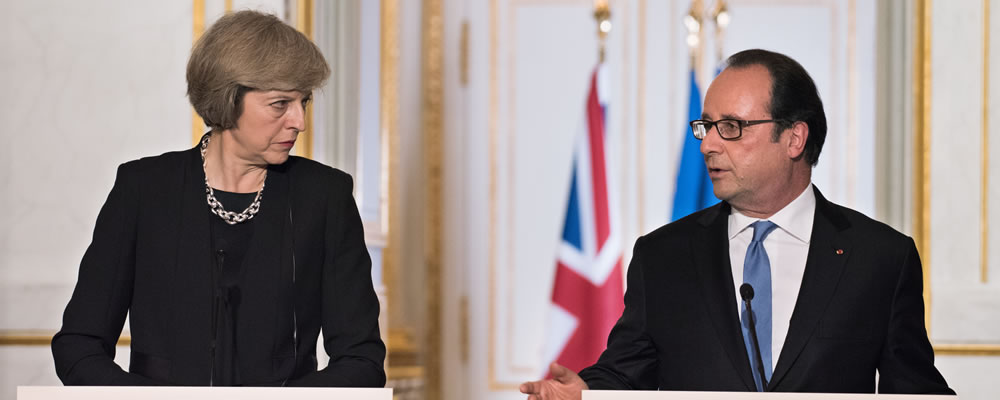On Wednesday afternoon, the Pound has declined further against the Euro. This has consisted of an exchange rate drop to 1.1197.
For the Pound, this decline comes on growing fears about Hard Brexit or even a ‘no deal’ Brexit, as well as worries about UK consumers facing tighter wages before the Christmas spending period.
(First published October 18th, 2017)
The Pound has traded in a narrow range against the Euro today, but could face a sharp decline depending on the Government’s stance on Brexit.
Pound Crash Possible if UK Faces ‘No-Deal’ Brexit
The Pound faces a potential plunge against the Euro in the coming weeks and months, heavily dependent on the Brexit process.
While it is generally accepted that Brexit was the ‘will of the people’ and will now be happening, there is still considerable uncertainty about the type of Brexit that the UK faces.
The latest concern has been that because of the clear difficulties in progressing in Brexit talks, the UK could call it quits and crash out of the EU without a trade or transition deal.
While this might delight hardline Brexiteers who wanted the UK to leave the EU immediately after the EU Referendum, such a withdrawal could be economically disastrous.
Speaking recently, Bank of England (BoE) Governor Mark Carney has supported the notion of a transitional deal, stating;
‘There will ultimately be a transition…a transition agreement is in everyone’s interest’.
Carney has additionally added that UK business have ‘less confidence about a smooth transition’, emphasising the widespread concerns about ‘no deal’.
If the UK does seem destined for a quick and messy exit from the EU, the Pound could be significantly devalued because of the negative economic and political implications.
Will Euro Pick Up on Future Inflation Figures?
For future sources of Euro movement, it might be worth watching Eurozone inflation rates.
These indicate the rate of price growth across all Eurozone nations and are used as an indicator for the European Central Bank (ECB).
The ECB’s inflation target is around 2%, but recently Eurozone inflation has remained stuck around the 1.5% level.
In the event that Eurozone inflation increases considerably, the Euro could make major gains against the Pound.
The ECB is still not expected to touch interest rates for the foreseeable future, but any signs that inflation is putting more pressure on the bank can be considered positive news.
More immediately, the ECB could start to unwind its vast quantitative easing program, consisting of purchased bonds.
If the ECB commits to this path of action, the Euro could still rise despite no imminent signs of an ECB interest rate hike.
Recent Interbank GBP EUR Exchange Rates
At the time of writing, the Pound to Euro (GBP EUR) exchange rate was trading at 1.1208 and the Euro to Pound (EUR GBP) exchange rate was trading at 0.8921.


Comments are closed.